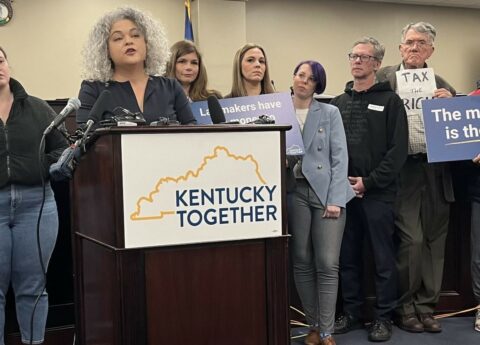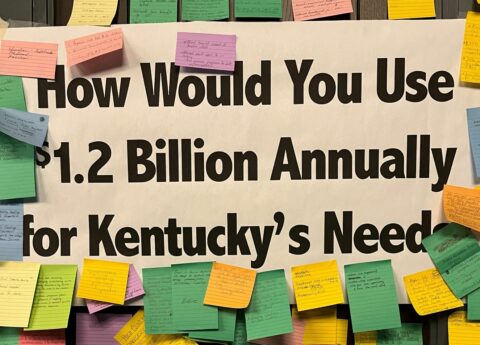In advance of a committee hearing scheduled for February 26, 2019, the content of this statement was sent to members of the House Economic Development and Workforce Investment Committee.
HB 387 broadly and dangerously amends the exceptions to the Open Records Act to potentially exclude all of the documents in the possession of the Cabinet for Economic Development from examination under the Act.
This broad expansion of the exceptions to the Open Records Act is in direct opposition to the statutorily stated intent of the Act, which is “that free and open examination of public records is in the public interest and the exceptions…shall be strictly construed even though such examination may cause inconvenience or embarrassment to public officials or others.”
Business tax breaks are paid for with public dollars and as such, the public should have a right to request and receive basic information about the companies receiving the benefits, including who the owners are, and what their ownership interest is. Language included in the proposal would protect this type of information from public examination, along with “financial information” about the companies.
The proposed language also broadly excludes from examination “information declared confidential by the Kentucky Economic Finance Authority pursuant to an administrative regulation.” One of the reasons the Open Records Act exists is so that the citizens of the commonwealth can hold publicly funded agencies and entities accountable. If those very agencies and entities are given control over determining what is and what is not confidential, the entire system is undermined. With this language, the General Assembly cedes its legislative authority to an Executive Branch agency – which is a very dangerous precedent to set.
The Cabinet for Economic Development already operates with less transparency than most state agencies, making it very difficult for legislators or anyone else to evaluate and monitor the effectiveness of the programs they operate and incentives they grant. If this bill passes, this difficult task will become even more difficult. I therefore urge you to vote no on House Bill 387.



